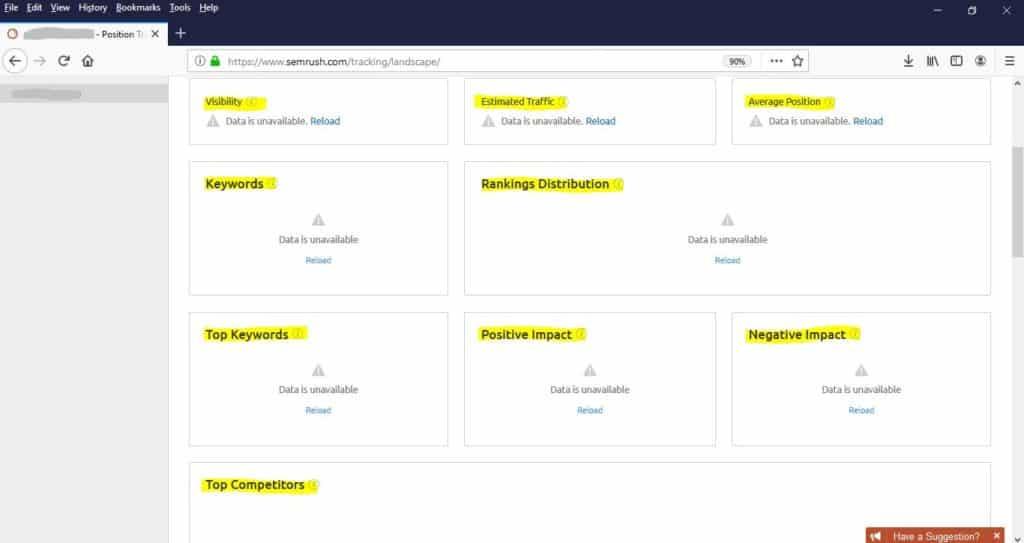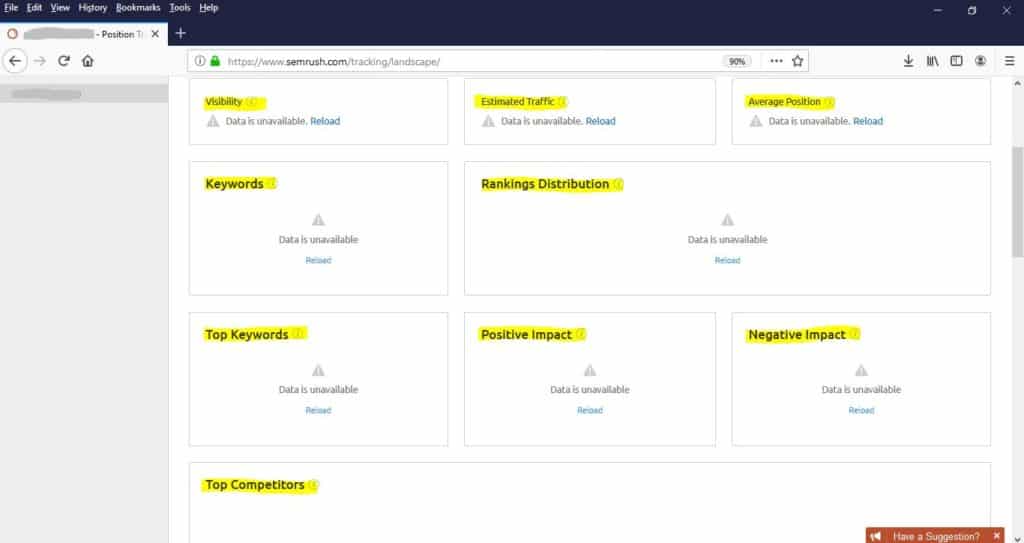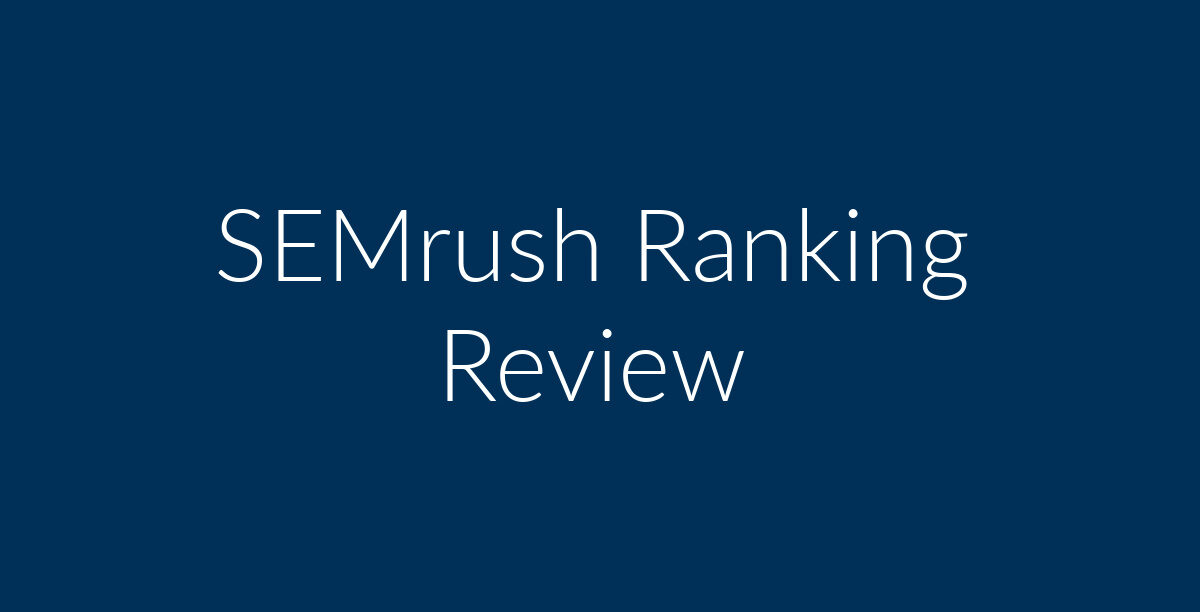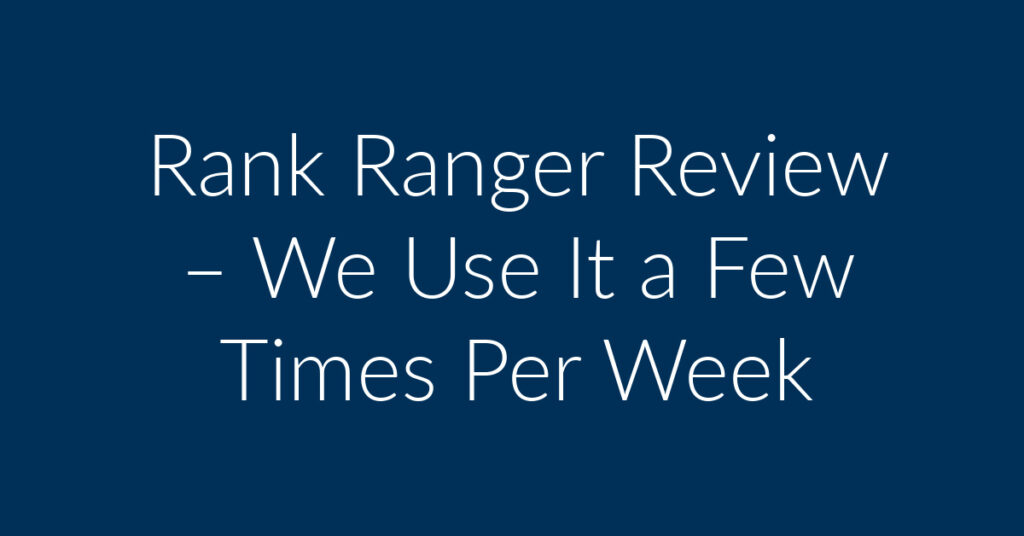Editors Note: Should you decide to sign up with SEMrush, do so using this link to get a discount!
Disclaimer: We are SEMrush affiliates. However, we use SEMrush ourselves, so our recommendations are based on read data. Don’t hesitate, therefore, to sign up using our links!
Which Keyword Position Tracking tool do you use on your website? At Planet Marketing, we use quite a number of SEO tools. One of these is SEMrush. For, Keyword Position Tracking, we have to say SEMrush works really well and we have no problem recommending it to our readers. In this article, we are going to;
- Introduce you to SEMrush.
- Discuss what SEMrush has to offer in terms of Keyword Tracking.
- Show you how SEMrush stacks against the competition in terms of Keyword Position Tracking.
The SEMrush Keyword Tracking Tool

The first thing that we need to mention is that SEMrush is a pretty well rounded SEO tool. Should you decide to sign up, this could very well be the last SEO tool that you will ever need!
Having carried out a number of reviews of Keyword Tracking companies, including Rank Ranger and SE Ranking, we have noted that while all of them offer Position Tracking, there are differences in the ways in which this is done.
What does SEMrush have to offer in terms of Keyword Position Tracking?

So, what does SEMrush have to offer in terms of Keyword Position Tracking? The screenshot above shows the SEMrush Keyword Position Tracking tool’s dashboard. As you can see, the tool provides a number of quite useful features. We have to say you will not be able to find many of these features with the opposition. Available features include;
- The Visibility Index: This is based on your website’s CTR and shows your site’s progress in Google’s top 100 for keywords from current tracking campaign. This applies to both organic and paid search results.
- Estimated Traffic: Based on your average CTR, multiplied by the volume of the keyword, divided by 30. Shows the probability that people will click on your domain based on its SERPS position.
- Average Position: Average position for all keywords in a campaign.
- Keywords: Information about which of your keywords are in the top 3, 10, 20 and 100.
- Top Keywords: Shows your best performing keywords.
- Positive Impact: Those of your keywords that performed the best within a given time frame.
- Negative Impact: Your worst performing keywords within a given time period.
- Rankings Distribution: Distribution of your rankings over times.
- Top Competitors: This tool also allows you to keep track of your competitors’ rankings and gives you a side by side comparison that shows you how well you are placed relative to the competition. Having this information allows you to further refine your keywords in order to keep track with competing businesses.
Discover local competitors
SEMrush’s Position Tracking software also comes with the ability to track local competitors. This is, perhaps, one of the most useful services that are provided by the various Rank Tracking concerns that we have, so far, reviewed.
Having identified who your local competitors are, it is also important for you to discover the various strategies that they are using to improve their own Search Engine rankings. Search Engine Optimization is such that it is necessary to constantly refine your strategies to take into the account the differences that arise from local variations in search queries and results. SEMrush gives you the ability to do this, which enables you to remain competitive in different localities.
Group Keywords with Tags
The various metrics that you have to follow while tracking your target keywords do tend to become overwhelming, particularly if there are thousands of them for a large number of websites. SEM has a unique feature that you can use to help keep track of all keywords, by grouping them in various ways.
You can, as an example, group your keywords according to brand name. The great thing about this feature is that it comes with the ability to add a particular keyword to several groups. Each keyword is allowed up to five tags.
Target Different Devices
With a large chunk of the world’s searches now being made from mobile devices, it is important for you to take into account the shift when coming up with your keyword monitoring strategy. Reports indicate that up to 60% of all searches are now being made from mobile devices. While this number tends to vary depending on location, it is still important to find out from which devices most of the searches that use your target keywords are being made.
SEMrush’s Position Tracking tool allows you to choose whether you want your statistics to be collected from desktops, smartphones or tablets. Search results vary depending on whether or not the inquiry has been made from a mobile device or a desktop computer, even for people in the same location. A major factor behind this occurrence is the fact that Search Engines tend to penalize websites that are not fully optimized for mobile devices with low rankings on mobile searches.
Understanding how well you are ranking on various devices gives you the information that you need to adjust your AdWords or Bing advertising campaigns. You can, as an example, choose to target your advertising to mobile devices, if that is where you are strongest. You can also adjust your content strategy to improve your ranking on the devices on which you are not as strong.
How does SEMrush stack up against the competition in terms of keyword tracking?
As mentioned earlier, all of the major Rank Tracking tools that are out there come with some degree of keyword tracking. What differs is the amount of information that you are likely to get from each of them, and the accuracy of the returned results. We have to say, after carrying out various reviews of Keyword Tracking tools, most of which we have used at some point in the past, or are still currently using, that SEMrush is not as robust as some of its competitors, including Rank Ranger and SE Ranking. You can check out the review that Planet Marketing did on Rank Ranger by following this link. You can also read the review that we carried out on SE Ranking on this link. SE Ranking is a very good alternative to SEMrush.
Accuracy of Results
As we pointed out in the earlier review that we carried out on SEMrush, our main bone of contention is the fact that the results do appear to be, somewhat, inaccurate. This fact is only offset by the fact that this tool is great at identifying and keeping tabs on the competition.
A Final Word
So, would we recommend SEMrush to our readers? The answer is a definite yes. While there are a few shortfalls, SEMrush, on the overall, remains solid and has the ability to give you a panoramic view of the playing field, including what your competitors are doing and how well they are optimizing their websites for search. Having this knowledge allows you to do more to refine your own strategies and gives you the chance to move up the ladder, both on organic and paid searches. It is safe to say, therefore, that while its Keyword Position Tracking feature is not as robust as what one might find among the competition, all the other features that you get when you sign up more than compensate for this.
Editors Note: Should you decide to sign up with SEMrush, do so using this link to get a discount!
Disclaimer: We are SEMrush affiliates. However, we use SEMrush ourselves, so our recommendations are based on read data. Don’t hesitate to sign up using our links.



